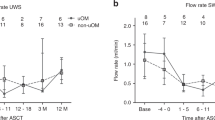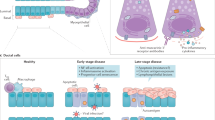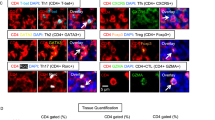Abstract
Interleukin-2 (IL-2) is known to cause xerostomia and skin manifestations similar to graft-versus-host disease (GVHD). We therefore evaluated major salivary gland function in patients with hematological malignancies treated with IL-2 and interferon-α (IFN-α) after ABSCT. Eleven patients (seven male, four female) of median age 40 (24–47) were evaluated, seven with non-Hodgkin lymphoma (NHL); one with Hodgkin’s disease (HD) and three with acute myelogenous leukemia (AML). Parotid and submandibular salivary gland function was assessed before, during and after IL-2/IFN-α administration by evaluation of the salivary flow rate and the composition of secreted saliva. Significant reductions in both the resting and stimulated parotid and submandibular salivary flow rates were observed during IL-2/IFN-α immunotherapy compared with the pre- and post-therapy values (P < 0.01), while no hyposalivation was observed in the control patients who underwent absct and did not received il-2. sialochemical evaluation revealed a significant increase in potassium concentration (24.4 ± 0.6 meq/l to 28.9 ± 1.4 meq/l) and a significant decrease in sodium concentration (6.7 ± 2.1 meq/l to 3.3 ± 1.0 meq.l) (P < 0.05) in the stimulated parotid gland saliva secreted during il-2/ifn-α administration. Salivary protein concentrations were not altered by the IL-2/IFN-α immunotherapy. Similar changes were previously observed in mice and humans with chronic GVHD. We conclude that IL-2 immunotherapy induces major salivary gland dysfunction in humans, similar to our previous observations in patients with chronic GVHD, which may indicate similar pathophysiologic mechanisms.
This is a preview of subscription content, access via your institution
Access options
Subscribe to this journal
Receive 12 print issues and online access
$259.00 per year
only $21.58 per issue
Buy this article
- Purchase on Springer Link
- Instant access to full article PDF
Prices may be subject to local taxes which are calculated during checkout
Similar content being viewed by others
Author information
Authors and Affiliations
Rights and permissions
About this article
Cite this article
Nagler, A., Nagler, R., Ackerstein, A. et al. Major salivary gland dysfunction in patients with hematological malignancies receiving interleukin-2-based immunotherapy post-autologous blood stem cell transplantation (ABSCT). Bone Marrow Transplant 20, 575–580 (1997). https://doi.org/10.1038/sj.bmt.1700928
Received:
Accepted:
Issue Date:
DOI: https://doi.org/10.1038/sj.bmt.1700928
Keywords
This article is cited by
-
A systematic review of salivary gland hypofunction and xerostomia induced by cancer therapies: prevalence, severity and impact on quality of life
Supportive Care in Cancer (2010)
-
Major salivary gland damage in allogeneic hematopoietic progenitor cell transplantation assessed by scintigraphic methods
Bone Marrow Transplantation (2006)
-
Parotid salivary gland dysfunction in chronic graft-versus-host disease (cGVHD): a longitudinal study in a mouse model
Bone Marrow Transplantation (2000)



